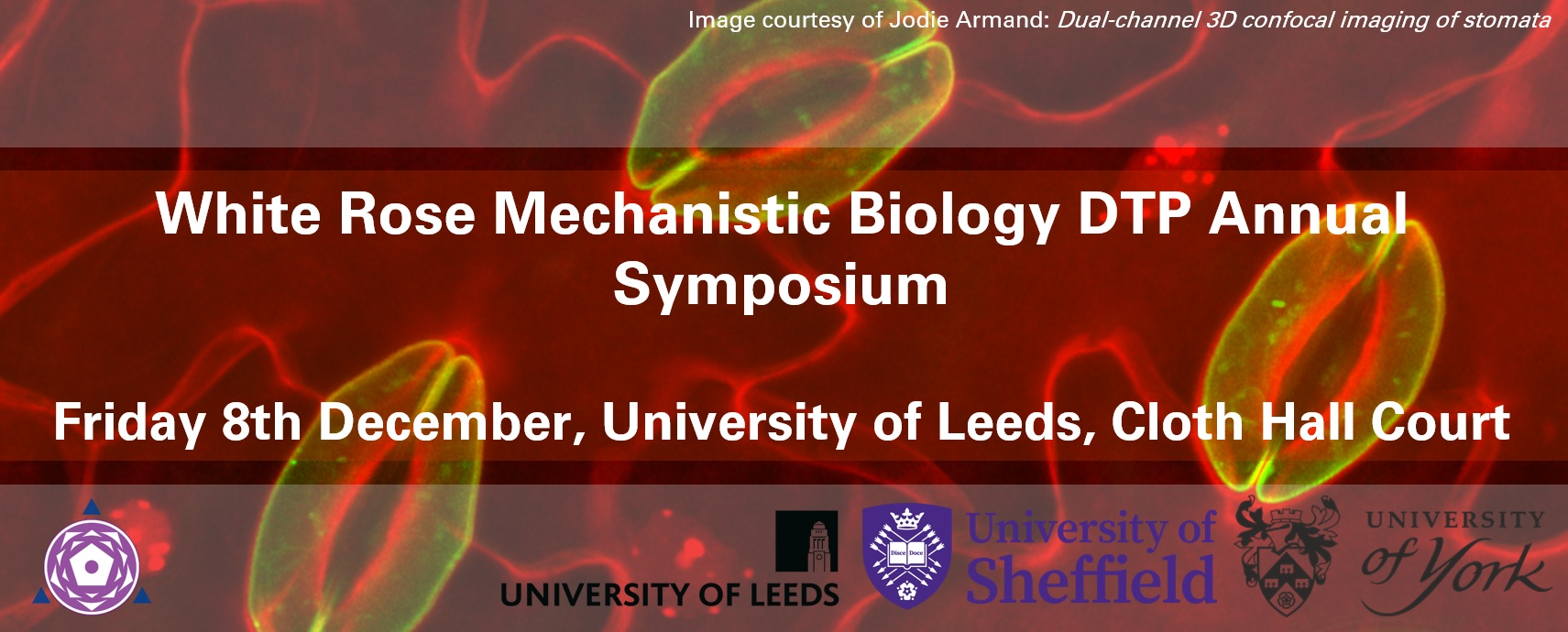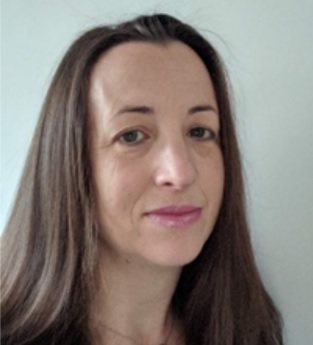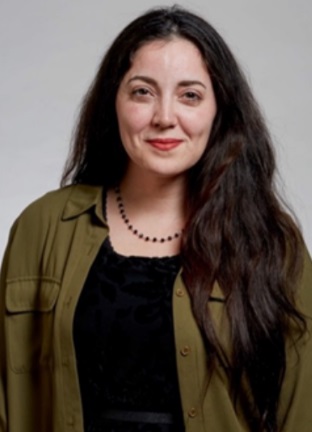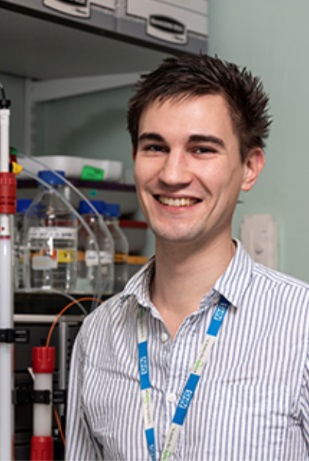White Rose Mechanistic Biology DTP Annual Symposium
Friday 8th December, University of Leeds, Cloth Hall Court
Key Deadlines
- Registration – Wednesday 1st November.
- Abstract submission (4th years only) – Tuesday 31st October.
- Allocation of 4th year research talks will be confirmed in November.
About
The annual White Rose Mechanistic Biology DTP Symposium will be held as a fully in-person event, for the first time in 2 years, on Friday 8th December at the University of Leeds. This event is held annually to celebrate the work of our 3rd and 4th year students, featuring various presentations that span a diverse range of research topics. This year the symposium theme is Careers in industry vs academia.
The symposium is mandatory for all White Rose DTP students and this year will be primarily in-person, however a limited virtual platform will be available on request.
Keynote speakers: During this year’s symposium we will have a couple of fantastic keynote speaker presentations, these will support our theme of careers in industry vs academia. Specific information on the speakers will be revealed closer to the date.
What do I need to do?
This symposium is a great opportunity to share the amazing research done by our 3rd and 4th Year students with the entire cohort.
- It is mandatory for 1st and 2nd Year students to attend the symposiums but students will not be asked to present at the event.
- 3rd Year students will submit posters which will be presented in person at the symposium. Please remember to print your poster and bring it to the symposium. Size A0 is recommended.
- 4th Year students will submit abstracts which will then be assessed by the symposium organising committee to determine which type of presentation they will give, either: Research presentation (10 minutes), Flash presentation (3 minutes), PIPS presentation (10 minutes) or a Poster presentation.
Please note it is not mandatory for 5th Year students (final year students with extensions), NPIF or iCASE students to attend the symposium, although they are more than welcome to attend. Students of any year group who have completed their PIPS are also welcome to apply to give a PIPS talk. They will need to express their interest and provide a brief summary of their PIPS work, which will be reviewed with 4th Year applications, depending on demand priority will be given to 4th Year students.
For more information see Registrations and Presentation Applications, Abstract Criteria and Presentations.
Registration and Presentation Applications
Registration for the event will open on the 19th September and close on the 1st November.
Abstract submission will open on the 25th September and close on the 31st October. The DTP Student Representatives will confirm which talk type you have been selected for by the 10th November.
To submit your abstract or to register your interest in giving a PIPS talk through the abstract submission form.
Abstract Criteria
Talk types will be determined by the symposium organising committee who will mark the 250 word abstracts using the following criteria:
1) Is the abstract accessible to a broader STEM audience?
2) Are the results interesting, novel and/or exciting?
3) Are the conclusions clear and concise? Do they reflect the aims?
4) Are the impacts and value of the findings clear?
Presentations
The annual symposium will host multiple different types of talks, specific details of each are found below:
- Research presentations (4th Years) – These are 8 minute live talks focused on ongoing or completed research, followed by 2 minutes of questions.
- Flash presentations (4th Years) – 3 minute pre-recorded short talks focussed on ongoing or completed research with no following questions.
- PIPS presentations – These are 8 minute live presentations about a student’s completed professional placement, followed by 2 minutes of questions.
- Poster presentations (3rd & 4th Years) – A poster focussed on completed or ongoing research.
Poster Guidelines
For this year’s Symposium the poster session will be in-person – this means you will need to PRINT your poster and bring it with you to the symposium! You will also need to bring some Velcro to hang your poster up on the felt poster boards. As in previous years, prizes for the best posters will be awarded at the end of the symposium!
Criteria:
- Portrait orientation
- Aspect ratio of 1:1.414 (this is the aspect ratio of standard paper sizes – A4, A0 etc)
- Good quality graphics and text which are easy to read
Content:
- Appropriate logos (BBSRC, White Rose, your university)
- Poster title (keep it concise!)
- Names (your name in font that stands out, supervisor, collaborators) and institutions
- Introduction
- Methodology (optional)
- (the main content is up to you, but your figures should be the dominant feature)
- Conclusions
- References
Programme
Friday 8th December: 09:00 – 18:00.
08:15 – Arrival and Registration
09:20 – Welcome Talk (Tom Bennett)
09:30 – Research Talks Session 1
11:00 – Break
11:25 – Keynote Speaker: Tom Minshull
11:45 – Research Talks Session 2
12:30 – Poster Viewing
13:00 – Lunch
14:00 – Q & A panel (Chris Hill, Joana Faria, James Whitehouse)
14:45 – Research Talks Session 3
15:15 – Break
15:35 – Research Talks Session 4
16:20 – Keynote Speaker: Pamela Williams
17:00 – Prize Giving and Closing Remarks (Tom Bennett)
17:15 – 18:00 – Drinks and networking
Keynote Speakers
Pamela Williams – Senior Director in the Molecular Sciences group at Astex Pharmaceuticals, Cambridge UK.
“My current focus is on the integration of cryoEM structure determination into the drug discovery process, building upon my interest in structure-based drug discovery technologies. Before joining Astex Pharmaceuticals, I was a postdoctoral research associate at the Scripps Research Institute, La Jolla, where my work focussed on the X-ray structure determination of metalloenzymes involved in electron transfer and xenobiotic metabolism. I have a DPhil in Molecular Biophysics from Oxford University.”
Tom Minshull – Manager of the Mass Spectrometry facility at the University of Leeds.
Tom completed a PhD in Biological Sciences at the University of Sheffield in 2016, after which he moved into industry and utilised mass spectrometry for the characterisation of biopharmaceuticals. Tom then joined University of Leeds in 2021 as a research fellow to use mass spectrometry-based structural biology approaches to better understand the formation and dynamics of protein complexes, specifically to characterise dynamic and transient oligomeric assemblies involved in cellular functions and disease. In 2023 Tom became Manager of the Mass Spectrometry facility in Leeds.
Q&A Panellists
Joana R. C. Faria
Joana (Twitter/X @JoanaRCF) did her PhD in molecular Parasitology at the Institute for Cellular and Molecular Biology (IBMC) in Porto and the Institut Pasteur Korea, in Seoul, funded by an FCT-funded international scholarship (2012-2016). She was always fascinated by virulence mechanisms, host pathogen interactions and gene expression. Therefore, in 2016, she moved to the Wellcome Centre for Anti-infectives Research at the University of Dundee to do a postdoc on mechanisms underpinning antigenic variation in trypanosomes. This has remained her true passion, as well as nuclear architecture, nuclear bodies and biomolecular condensates and how those impact gene expression. In 2021, she was awarded a Sir Henry Dale Fellowship by the Wellcome Trust and the Royal Society to establish her lab at the University of York, where she is also a Proleptic Lecturer in Biomedical Sciences. Her work has been recently recognised by the Wellcome-Beit Prize (by the Wellcome Trust), the President’s Medal (by the British Society of Parasitology), and she has recently been appointed as a member of the Biological Sciences grant committee by the Royal Society.
Chris Hill
Chris completed a PhD in X-ray crystallography in the laboratories of Dr Janet Deane and Prof. Randy Read at the Cambridge Institute for Medical Research. In 2015 he joined the MRC Laboratory of Molecular Biology as a postdoctoral scientist, working with Dr Lori Passmore on cryo-EM studies of the pre-mRNA cleavage and polyadenylation machinery. Chris then moved to the University of Cambridge Department of Pathology to direct a structural and biophysical programme of work for Prof. Ian Brierley on ribosomal frameshifting. In 2021 he was awarded a Sir Henry Dale Fellowship from Wellcome and the Royal Society to establish his own group at the University of York, studying mechanisms of altered ribosome function and pathological translation in viral infection. Chris is a member of the RNA Society, the Microbiology Society and a former Fellow of Queens’ College, Cambridge.
James Whitehouse
James recently completed his PhD at Leeds University, working in the laboratories of Professor Sheena Radford and Professor David Brockwell. His project investigated de novo designed proteins for application into research of nanopores, and other biotechnological advances. He continued this research as a Postdoctoral researcher in the same lab and in 2023 James joined Oxford Nanopore as a research scientist.
Image Competition
Thank you to everyone who has submitted images for our Symposium Imaging Competition. We have chosen our favourite images for use in our promotional material (hopefully you’ve spotted them!). Here are the winning entries:
Many congratulations to Jodie Armand who has won the image competition with this great image captioned ‘Dual-channel 3D confocal imaging of stomata’!
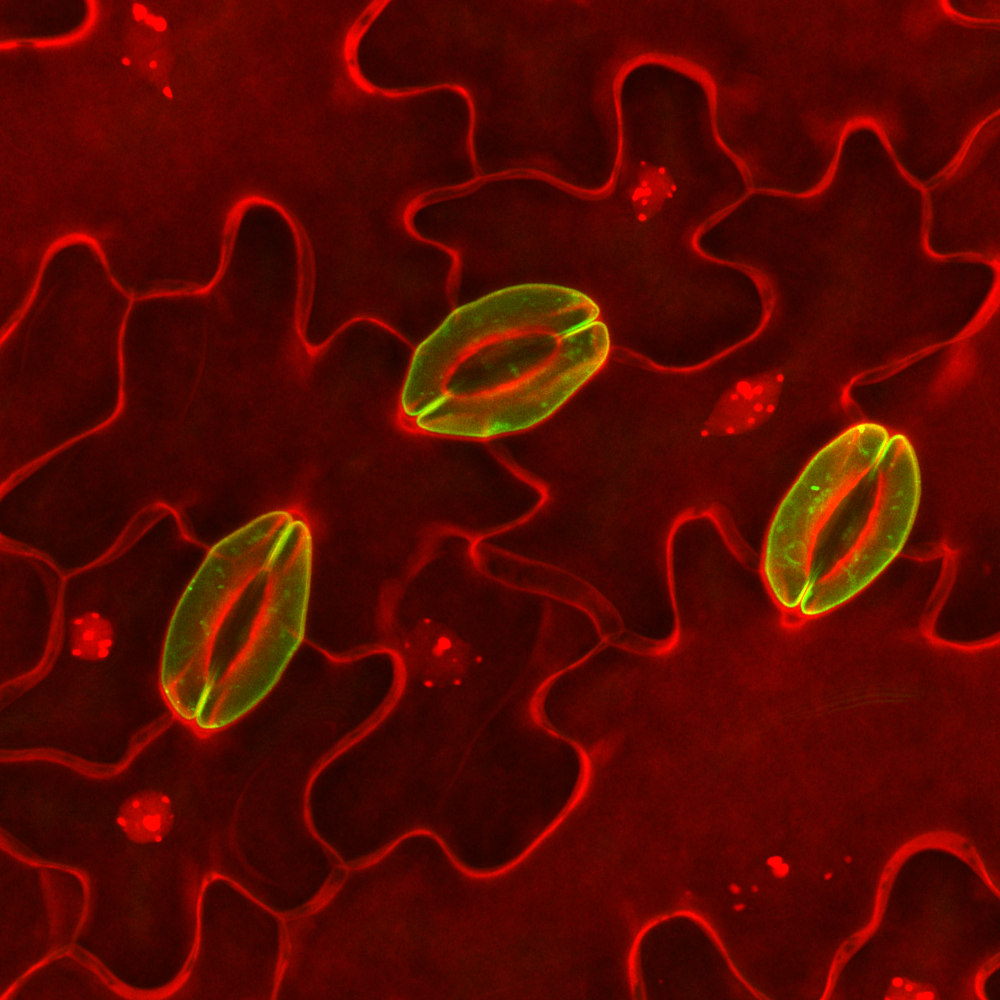
BBSRC Themes
The DTP’s research addresses four of the BBSRC’s core strategic themes. Posters will be sub-divided into these themes:
Advancing the frontiers of bioscience discovery
- Understanding the rules of life (formerly World Class Underpinning Bioscience)
- Transformative technologies (formerly Exploiting New Ways of Working)
Tackling strategic challenges
- Bioscience for sustainable agriculture and food (formerly Agriculture and Food Security)
- Bioscience for renewable resources and clean growth (formerly Industrial Biotechnology and Bioenergy)
The themes were updated by the BBSRC in 2019. For details, see the Research Themes page.
More information is on its way, so watch this space!

